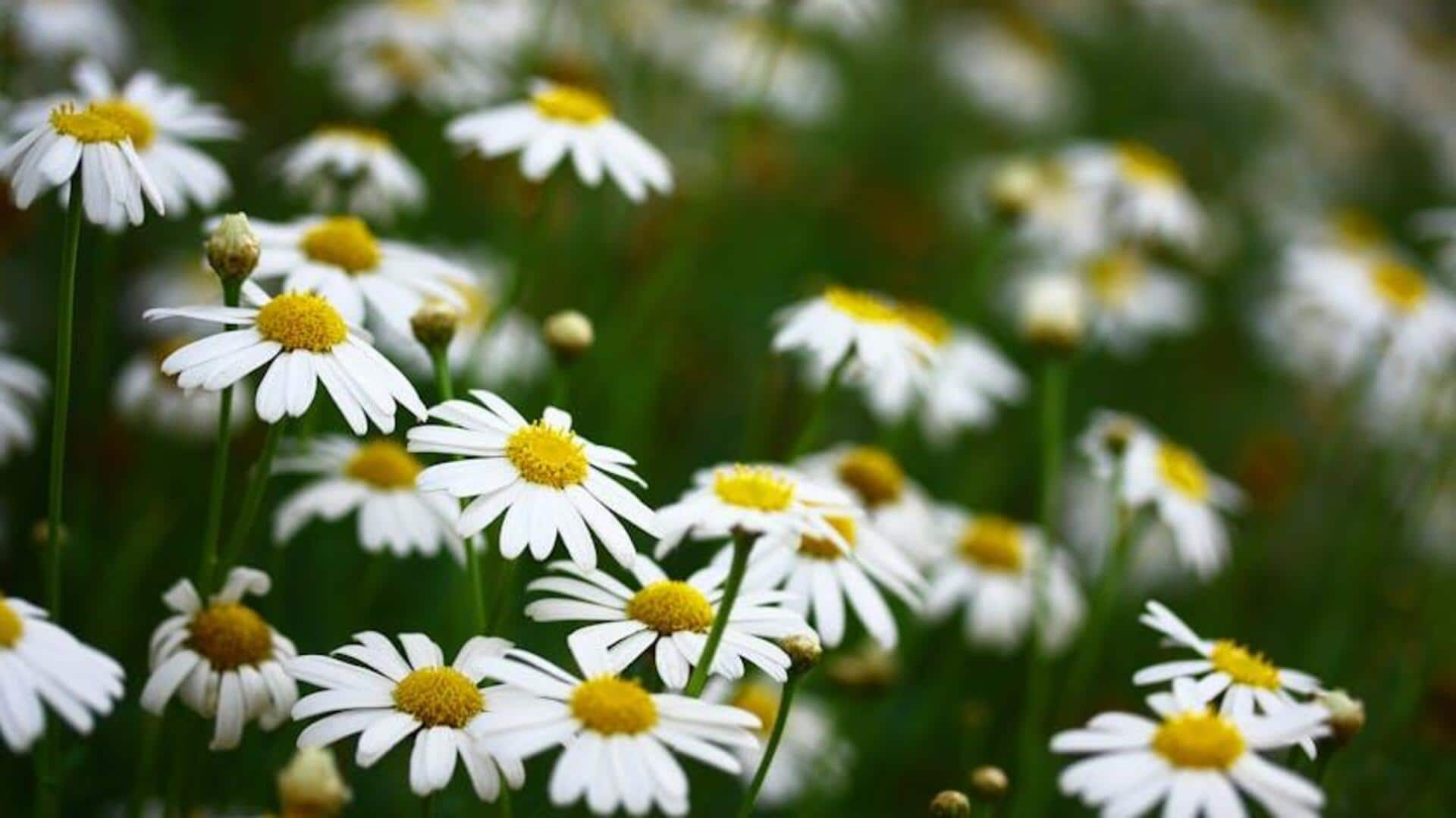
How to grow chamomile at home
What's the story
Chamomile tea is loved for its soothing effects and beautiful fragrance. If you grow your own chamomile plants, you'll be able to enjoy a fresh, homegrown cup of tea. This article gives you practical tips for growing chamomile plants in your garden, or even inside your home. With the right conditions and care, you can always have this calming herb at your fingertips.
Selection
Choosing the right variety
There are two main types of chamomile: German and Roman. German chamomile is an annual plant that grows taller and is preferred for tea as it is sweeter. Roman chamomile is a perennial with a slightly bitter flavor but provides beautiful ground cover. Choose as per your taste preference and if you want an annual or perennial plant.
Environment
Ideal growing conditions
Chamomile plants flourish in well-drained sandy or loamy soil, ideally with a pH of between 5.6 and 7.5. It's important that the area where you plant receives at least six hours of direct sunlight every day. While they can also grow under partial shade, this ensures the best growth and health of chamomile. It sets the stage for profuse flowering.
Methods
Planting techniques
If you're in a cooler climate, start by sowing seeds indoors roughly six weeks before the last frost date. Or, sow them directly outdoors once the danger of frost has passed. Scatter seeds lightly on the soil surface, without burying them too deep. They need light to germinate.
Care
Watering and maintenance tips
Chamomile needs moderate watering to keep the soil moist but not waterlogged, which can cause root rot. Once the plants are well-established, they are drought tolerant but they do much better with regular watering during long dry spells. Regular pruning not only encourages bushier growth but also encourages the removal of spent flowers, which promotes more prolific blooming throughout the growing season.
Collection
Harvesting your chamomile flowers
To enjoy the best flavor, harvest chamomile flowers when they're fully open, preferably on sunny days after the morning dew has evaporated. With scissors or pruners, carefully cut the flower heads just below their base. This way, you don't damage the stem and new blooms develop efficiently over time, ensuring a constant supply of flowers to prepare your tea.